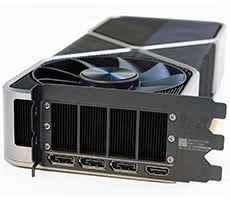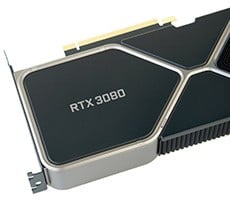ATI Radeon HD 5870 Overclocked Round-up
Test System and Cinebench R11.5

How We Configured Our Test Systems: We tested the graphics cards on an EVGA X58 Classified motherboard powered by a Core i7 980X six core processor and 6GB of OCZ DDR3-2000 RAM. For this article, we decided to overclock the processor in order to minimize the possibility of a CPU bottleneck during testing. At 3.33 GHz, the Core i7 980X is currently the fastest consumer chip on the market, and we made it even faster by overclocking it to rock solid stable 4.3 GHz. Then we manually configured the memory timings and disabled any integrated peripherals that wouldn't be put to use. We used Windows 7 Professional x64, downloaded the latest updates, and installed necessary drivers and applications.
|
|
|
|
Hardware Used: Crucial M225 128GB SSD |
Benchmarks Used: |
|
|
|
|
|
Cinebench R11.5 is an OpenGL 3D rendering performance test based on Cinema 4D from Maxon. The benchmark goes through a series of tests that measures the performance of the graphics card under real world circumstances. Within Cinebench, graphics card testing makes use of a complex 3D scene depicting a car chase which measures the performance in OpenGL mode. Results are given in frames per second; the higher the number, the faster the graphics card. |

Cinebench test results only displayed a 2% performance delta between the fastest and slowest cards in our comparison group, less than 1 fps. We expected to see more separation, considering the range of GPU core clocks represented by these cards. All three overclocked cards were a hair faster than the stock card, with Gigabyte's version grabbing the highest score.







